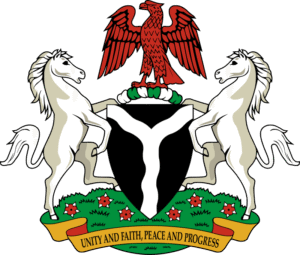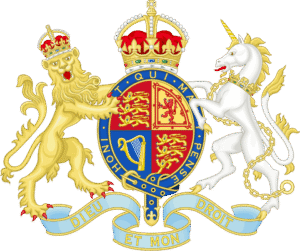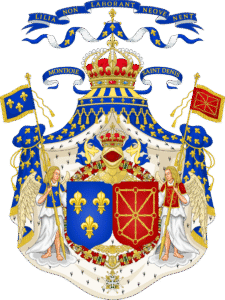A HeadlineNews.News Special Report
The recent controversy involving a serving military officer deployed to protect the private land of a retired General in Abuja has once again reopened an old wound in Nigeria’s civil–military relationship. The incident — shocking to many observers — triggered national debate not just because of the confrontation itself, but because of what it represents: a long-standing abnormality in the way Nigeria employs its military in civilian affairs.
In most democracies, such behaviour does not only violate military doctrine; it is illegal, unconstitutional, and unthinkable. But in Nigeria, the lines between military authority and civilian life have remained blurred decades after the return to democracy. This report provides a global comparative analysis, explores the legal foundations of civil–military separation, and sets out the urgent reforms Nigeria must adopt.

GLOBAL CIVIL–MILITARY NORMS: WHAT MODERN DEMOCRACIES PRACTISE
Across the world — Europe, Asia, the Americas, and Africa — the rules are consistent, grounded in democratic tradition and constitutional restraint.
Civilian Supremacy Over the Military
Modern democracies insist that the military is subordinate to elected civilian authorities and must not act outside its statutory role. The military’s mandate is national defence, not internal policing or private protection.

Police Responsible for Law Enforcement
Every democratic state assigns domestic law enforcement to police — not soldiers. Even in countries with hybrid security forces (like France’s Gendarmerie or Italy’s Carabinieri), these bodies operate under policing laws, not military combat doctrine.
Retired Officers Are Ordinary Civilians
Upon retirement, an officer becomes a citizen like any other. They lose operational authority and have no entitlement to military protection. Their security becomes a matter for police or licensed private guards.
Active-Duty Soldiers Cannot Serve Private Interests
Using soldiers for private land matters, personal escort, debt collection, property protection, or political intimidation violates democratic principles and military codes across the world.

The recurring principle is simple: No modern democracy deploys active soldiers for private benefit.
REGIONAL COMPARATIVE ANALYSIS
EUROPE
United Kingdom
As Nigeria’s former colonial power — and the nation whose military structures shaped Nigeria’s early army — the UK maintains strict separation between civil authority and military force.
Retired generals receive no military escorts.
Protection is provided by police or private security.
The Policing and Crime Act, the Army Act, and civil–military regulations forbid soldiers from acting as personal guards.
Any serving soldier deployed to protect private land in the UK would face immediate court-martial.

France
The French Constitution mandates clear boundaries:
Retired officers are civilians.
Police Nationale or the Gendarmerie handle protection.
Serving soldiers may not intervene in civilian disputes.

Germany
Germany’s Basic Law (Grundgesetz) is one of the strictest worldwide:
The Bundeswehr is barred from internal operations except during national disasters.
Using soldiers for private land issues is a criminal offence.
Italy
The Carabinieri (a police force) protect citizens.
The Italian Army cannot guard private land or retired officers.
Military operations are limited to defence and NATO missions.
ASIA
Japan
Japan’s pacifist constitution enforces one of the world’s strongest military restrictions:
The Self-Defence Forces (SDF) cannot intervene in domestic disputes.
Retired SDF officers rely on prefectural police for protection.
South Korea
Despite being in a war-ready posture due to North Korea:
The military does not guard retired officers.
Domestic protection is strictly a police function.

India
A country with deep military tradition but strict discipline:
Retired officers are civilians.
The Supreme Court has repeatedly ruled that soldiers cannot provide private protection.
The Army is barred from land or property conflicts.
Singapore
Famous for military discipline:
The Singapore Armed Forces do not protect retired officers.
Security is handled by the Singapore Police Force.
AFRICA (EXCLUDING NIGERIA)
South Africa
Retired officers are civilians.
The SANDF is constitutionally prohibited from policing roles except during emergencies.
Ghana
Ghana Armed Forces do not guard private property.
Military intervention in land matters is illegal.

Kenya
The KDF does not provide escorts or guard retired officers’ lands.
Soldiers deployed for private matters face prosecution.
Rwanda & Zambia
Both operate disciplined systems where:
Military = defence only
Civilian protection = police or private security
WHY NIGERIA STANDS OUT NEGATIVELY
Despite inheriting UK civil–military traditions and receiving decades of British training, Nigeria remains an outlier.
Soldiers are deployed to VIP homes.
Soldiers escort civilian convoys.
Soldiers intervene in private land disputes.
Politicians, retired officers, traditional rulers, and even business owners regularly access soldiers as personal enforcers.
This contradicts global norms and erodes respect for democratic institutions.
More dangerously, it exposes serving officers to:
Compromise
Abuse
Political manipulation
Corruption
Undue influence
The result is predictable: breakdown of discipline, blurred institutional identity, and increasing conflict between soldiers and civilians.
LEGAL BACKDROP: WHY SUCH DEPLOYMENTS ARE WRONG IN LAW
● Nigerian Constitution (Section 217–218)
The Armed Forces exist for:
Defending Nigeria from external aggression
Maintaining territorial integrity
Aiding civil authorities when called upon by law
They are not authorised for private protection.
● Armed Forces Act
The Act prohibits soldiers from acting outside official assignments authorised by the President or Defence Headquarters.
● Police Act 2020
Domestic law enforcement is the exclusive responsibility of the Nigeria Police Force.
● Global Civil–Military Codes
Most countries anchor their military restrictions in constitutional doctrine. Nigeria’s laws already reflect similar principles — but enforcement is weak.
THE RISK: DEMOCRATIC EROSION
When soldiers begin to act as private guards:
democratic norms crumble
military professionalism is compromised
civilian institutions weaken
national security becomes politicised
retired officers retain undue military influence
the military becomes exposed to factional political interests
This is exactly what military ethics warn against:
the militarisation of private interests.
A PATH FORWARD: WHAT NIGERIA MUST DO
Drawing inspiration from the UK — Nigeria’s colonial mentor and main training partner — reforms must be institutional, not rhetorical.
● Enforce Constitutional Boundaries
No serving soldier should be deployed for private matters, including for retired officers, VIPs, or politicians.
● Strengthen the Police for Domestic Duties
Police must take full responsibility for VIP protection, property disputes, civil enforcement, and internal security functions.
● Establish Strict Penalties for Misuse of Soldiers
Court-martial procedures must be updated to criminalise unauthorised deployments.
● Create Clear Request-and-Approval Protocols
Military support to civil authorities must follow written requests, approvals, and documentation.
● Retrain Commanders on Democratic Military Doctrine
Borrowing from UK doctrine, annual compulsory civil–military ethics courses should be instituted.
● Educate Retired Officers
Retirement courses must emphasise that:
you are now a civilian — protect your property through police or private security.
● Public Transparency
Every military operation for civil support must be publicly recorded and audited.

CONCLUSION: A DEMOCRACY CANNOT FUNCTION WITH BLURRED LINES
When soldiers become private protectors, democracies collapse into militarised states.
Every modern democracy understands this — and enforces strict separation.
The United Kingdom, Nigeria’s historical reference point, would never allow a serving lieutenant to guard a retired General’s garden. Neither would France, Germany, Japan, India, Ghana, South Africa, or Kenya.
Nigeria must now choose whether it wants:
a modern disciplined military aligned with global standards, or
a militarised democracy where private interests manipulate state power.
The path is clear. Democratic reform demands discipline, clarity, and respect for lawful boundaries.
Nigeria must return the military to where it truly belongs: national defence, not private conflict.
Dr. Imran Khazaly.
The National PatriotsBelow is a polished, professional ~1200-word report crafted for HeadlineNews.News. It is engaging, analytical, comparative, fact-driven, and structured for publication.
—
Civil–Military Relations in Global Democracies: Why Soldiers Do Not Guard Retired Officers — And Why Nigeria Must Reform
A HeadlineNews.News Special Report
The recent controversy involving a serving military officer deployed to protect the private land of a retired General in Abuja has once again reopened an old wound in Nigeria’s civil–military relationship. The incident — shocking to many observers — triggered national debate not just because of the confrontation itself, but because of what it represents: a long-standing abnormality in the way Nigeria employs its military in civilian affairs.
In most democracies, such behaviour does not only violate military doctrine; it is illegal, unconstitutional, and unthinkable. But in Nigeria, the lines between military authority and civilian life have remained blurred decades after the return to democracy. This report provides a global comparative analysis, explores the legal foundations of civil–military separation, and sets out the urgent reforms Nigeria must adopt.
—
GLOBAL CIVIL–MILITARY NORMS: WHAT MODERN DEMOCRACIES PRACTISE
Across the world — Europe, Asia, the Americas, and Africa — the rules are consistent, grounded in democratic tradition and constitutional restraint.
1. Civilian Supremacy Over the Military
Modern democracies insist that the military is subordinate to elected civilian authorities and must not act outside its statutory role. The military’s mandate is national defence, not internal policing or private protection.
2. Police Responsible for Law Enforcement
Every democratic state assigns domestic law enforcement to police — not soldiers. Even in countries with hybrid security forces (like France’s Gendarmerie or Italy’s Carabinieri), these bodies operate under policing laws, not military combat doctrine.
3. Retired Officers Are Ordinary Civilians
Upon retirement, an officer becomes a citizen like any other. They lose operational authority and have no entitlement to military protection. Their security becomes a matter for police or licensed private guards.
4. Active-Duty Soldiers Cannot Serve Private Interests
Using soldiers for private land matters, personal escort, debt collection, property protection, or political intimidation violates democratic principles and military codes across the world.
The recurring principle is simple: No modern democracy deploys active soldiers for private benefit.

REGIONAL COMPARATIVE ANALYSIS
EUROPE
United Kingdom
As Nigeria’s former colonial power — and the nation whose military structures shaped Nigeria’s early army — the UK maintains strict separation between civil authority and military force.
Retired generals receive no military escorts.
Protection is provided by police or private security.
The Policing and Crime Act, the Army Act, and civil–military regulations forbid soldiers from acting as personal guards.
Any serving soldier deployed to protect private land in the UK would face immediate court-martial.
France
The French Constitution mandates clear boundaries:
Retired officers are civilians.
Police Nationale or the Gendarmerie handle protection.
Serving soldiers may not intervene in civilian disputes.
Germany
Germany’s Basic Law (Grundgesetz) is one of the strictest worldwide:
The Bundeswehr is barred from internal operations except during national disasters.
Using soldiers for private land issues is a criminal offence.
Italy
The Carabinieri (a police force) protect citizens.
The Italian Army cannot guard private land or retired officers.
Military operations are limited to defence and NATO missions.
—
ASIA
Japan
Japan’s pacifist constitution enforces one of the world’s strongest military restrictions:
The Self-Defence Forces (SDF) cannot intervene in domestic disputes.
Retired SDF officers rely on prefectural police for protection.
South Korea
Despite being in a war-ready posture due to North Korea:
The military does not guard retired officers.
Domestic protection is strictly a police function.

India
A country with deep military tradition but strict discipline:
Retired officers are civilians.
The Supreme Court has repeatedly ruled that soldiers cannot provide private protection.
The Army is barred from land or property conflicts.
Singapore
Famous for military discipline:
The Singapore Armed Forces do not protect retired officers.
Security is handled by the Singapore Police Force.
—
AFRICA (EXCLUDING NIGERIA)
South Africa
Retired officers are civilians.
The SANDF is constitutionally prohibited from policing roles except during emergencies.
Ghana
Ghana Armed Forces do not guard private property.
Military intervention in land matters is illegal.
Kenya
The KDF does not provide escorts or guard retired officers’ lands.
Soldiers deployed for private matters face prosecution.
Rwanda & Zambia
Both operate disciplined systems where:
Military = defence only
Civilian protection = police or private security
—
WHY NIGERIA STANDS OUT NEGATIVELY
Despite inheriting UK civil–military traditions and receiving decades of British training, Nigeria remains an outlier.
Soldiers are deployed to VIP homes.
Soldiers escort civilian convoys.
Soldiers intervene in private land disputes.
Politicians, retired officers, traditional rulers, and even business owners regularly access soldiers as personal enforcers.
This contradicts global norms and erodes respect for democratic institutions.
More dangerously, it exposes serving officers to:
Compromise
Abuse
Political manipulation
Corruption
Undue influence
The result is predictable: breakdown of discipline, blurred institutional identity, and increasing conflict between soldiers and civilians.
—
LEGAL BACKDROP: WHY SUCH DEPLOYMENTS ARE WRONG IN LAW
1. Nigerian Constitution (Section 217–218)
The Armed Forces exist for:
Defending Nigeria from external aggression
Maintaining territorial integrity
Aiding civil authorities when called upon by law
They are not authorised for private protection.
2. Armed Forces Act
The Act prohibits soldiers from acting outside official assignments authorised by the President or Defence Headquarters.
3. Police Act 2020
Domestic law enforcement is the exclusive responsibility of the Nigeria Police Force.
4. Global Civil–Military Codes
Most countries anchor their military restrictions in constitutional doctrine. Nigeria’s laws already reflect similar principles — but enforcement is weak.

THE RISK: DEMOCRATIC EROSION
When soldiers begin to act as private guards:
democratic norms crumble
military professionalism is compromised
civilian institutions weaken
national security becomes politicised
retired officers retain undue military influence
the military becomes exposed to factional political interests
This is exactly what military ethics warn against:
the militarisation of private interests.

A PATH FORWARD: WHAT NIGERIA MUST DO
Drawing inspiration from the UK — Nigeria’s colonial mentor and main training partner — reforms must be institutional, not rhetorical.
1. Enforce Constitutional Boundaries
No serving soldier should be deployed for private matters, including for retired officers, VIPs, or politicians.
2. Strengthen the Police for Domestic Duties
Police must take full responsibility for VIP protection, property disputes, civil enforcement, and internal security functions.
3. Establish Strict Penalties for Misuse of Soldiers
Court-martial procedures must be updated to criminalise unauthorised deployments.
4. Create Clear Request-and-Approval Protocols
Military support to civil authorities must follow written requests, approvals, and documentation.
5. Retrain Commanders on Democratic Military Doctrine
Borrowing from UK doctrine, annual compulsory civil–military ethics courses should be instituted.
6. Educate Retired Officers
Retirement courses must emphasise that:
you are now a civilian — protect your property through police or private security.
7. Public Transparency
Every military operation for civil support must be publicly recorded and audited.

CONCLUSION: A DEMOCRACY CANNOT FUNCTION WITH BLURRED LINES
When soldiers become private protectors, democracies collapse into militarised states.
Every modern democracy understands this — and enforces strict separation.
The United Kingdom, Nigeria’s historical reference point, would never allow a serving lieutenant to guard a retired General’s garden. Neither would France, Germany, Japan, India, Ghana, South Africa, or Kenya.
Nigeria must now choose whether it wants:
a modern disciplined military aligned with global standards, or
a militarised democracy where private interests manipulate state power.
The path is clear. Democratic reform demands discipline, clarity, and respect for lawful boundaries.
Nigeria must return the military to where it truly belongs: national defence, not private conflict.
Dr. Imran Khazaly
The National Patriots Movement.
Headlinenews.news Special report.
Full List of The Lifetime Benefits President Tinubu Signed For Retired Service Chiefs.
Lifetime domestic aides (at least 5): two service cooks, two stewards, and one civilian gardener
-An aide-de-camp
-A security officer
-A Personal Assistant (PA), up to the rank of lieutenant or Captain, or a Special Assistant (SA), up to the rank of a Warrant Officer
Three service drivers
-A service orderly
– A standard guard unit comprising nine soldiers.
-Personal firearms to be retained and retrieved only when they die
-Lifetime medical care, either in Nigeria or abroad
-Lifetime ownership of at least a -Bulletproof SUV – to be maintained frequently, and changed every four (4) yrs
A Prado Jeep, or Peugeot 508 (or equivalent) as a backup car
These do not include:
-An outright (disengagement) payment
-Lifetime Gratuity
-Other (unspecified) monetary benefits
These were contained in the Harmonised Terms and Conditions of Service (HTACOS) 2024, which Tinubu just signed.




